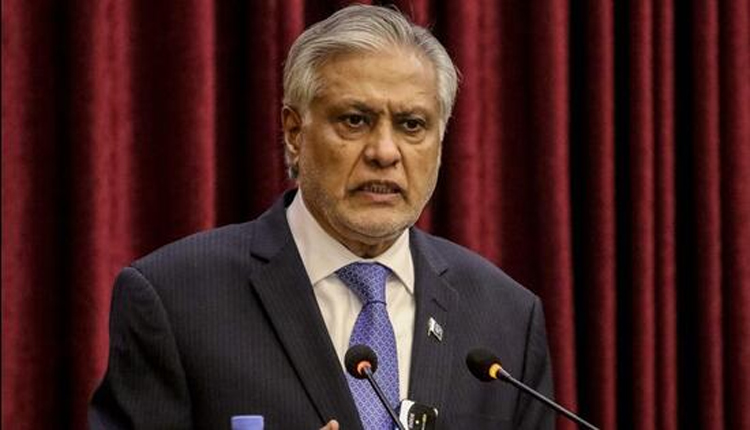New Delhi: Ishaq Dar, the Foreign Minister of Pakistan, increased border tensions when he issued warnings to India through diplomatic channels following the destructive Pahalgam terror assault. During his media appearance, Dar stated that the Pakistani military stands ready while indicating Pakistan engaged with 45 foreign embassy representatives to combat India’s Baisaran Valley attack explanation from April 22 that resulted in the death of 26 people, primarily tourists, in Jammu and Kashmir’s Baisaran Valley.
The remarks appear while India maintains elevated diplomatic pressure against Pakistan because it holds Pakistan accountable for supporting the LeT-organized attack. Indian authorities implemented a suspension of the Indus Waters Treaty (IWT) for sharing the Indus River system, which was established in 1960. The leader warned that Pakistani soil would be threatened with war through any blockage of water distribution to Pakistan while repeating statements made in Pakistan’s legislature. The Indus Waters Treaty provides 240 million Pakistanis with their essential sustenance. India commits a grave error by using the Pahalgam incident to launch aggressive moves, according to Pakistani views expressed through Dar.
India halted the operation of the IWT on April 23 based on the events that killed 25 Indian visitors alongside one Nepali citizen. New Delhi enacted several new restrictions by blocking the movement of people across Attari-Wagah, banning Pakistani planes from Indian airspace, and forcing Pakistani diplomats to leave the country. According to Dar, the Indian actions were both conflicting and confrontational because India employed the Pahalgam incident to harm regional stability. Pakistan has briefed international representatives about India’s illegal actions which threaten to disrupt regional peace, according to the claims made by Dar.
During his remarks, Dar used an aggressive speaking style while asking for an investigation into Pahalgam despite India showing evidence that connected Pakistan to the attack. The National Investigation Agency (NIA) has identified Hashim Musa as a primary LeT member behind the attack together with other LeT operatives who received support from overground workers operating in South Kashmir. The External Affairs Minister of India, S. Jaishankar, has declared that the perpetrators, along with their supporters, will face justice as New Delhi maintains its resolve.
Both countries face a dangerous future of worsening diplomatic relations after the situations between them reached their all-time worst point. The Pakistani government now pursues connections with worldwide powers, such as China, Turkey, and Russia, because it needs backing, while India uses member briefings at the UN Security Council as its diplomatic approach. The European Union, along with the United States, pushed both nations to maintain control of the situation based on Kaja Kallas’s assessment that tensions were “alarming” after she talked with Jaishankar and Dar.
The fragile relationship between Pakistan and India has become even worse due to Dar’s threats during the ongoing crisis that India initiated. The trend between India and Pakistan has reached a dangerous point as India keeps its military forces in a state of alert and Pakistan presents what it calls “credible intelligence” that India is preparing for an attack. Multiple nations closely observe the developments because they hope that diplomatic efforts will prevent the situation from escalating amongst these nuclear powers in the unstable region.



Comments are closed.